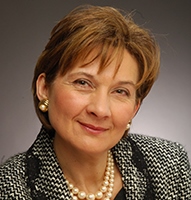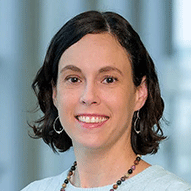Dallas/Plano
214-456-8899
Fax: 214-456-5953
New Patients
214-456-5937
Fax: 214-456-5953
Bipolar disorder is a mental health condition where patients may have periods of high energy and hyperactivity, followed by periods of sadness and depression. Since bipolar disorder is rare in children, the experts at Children’s Health carefully evaluate your child to make sure we know what’s causing your child’s symptoms and to give them an accurate diagnosis. Then our team can create a custom treatment plan to keep your child happy and healthy as they grow up.
214-456-8899
Fax: 214-456-5953
214-456-5937
Fax: 214-456-5953
Bipolar disorder is a mental health condition, often with two phases: mania and depression. During manic phases, children may have high energy, and may be impulsive, irritable and have a hard time sleeping or focusing. During times of depressive symptoms, children can experience sadness, a lack of motivation and low energy.
These extreme mood changes can be very disruptive in your child’s life. Your child might be so restless that they engage in reckless behaviors or have a hard time concentrating on schoolwork. They may have periods of low energy, when they’re not interested in any activities.
Children and teens may experience one of two types of bipolar disorder:
With bipolar type 1, your child experiences both extreme highs (like not being able to sleep for days) and lows (like refusing to eat or feeling very tired).
Children with bipolar type 2 only experience the depression phase, without the manic phase.
Childhood and adolescence are emotion-filled times in any child’s life. But pediatric bipolar disorder is more extreme than typical mood swings. Children with this condition may have the following symptoms and behaviors:
Extreme highs
Extreme lows
If your child’s doctor suspects bipolar disorder, they may:
It’s normal for teenagers to feel emotional and have mood swings. But if the periods of mania or depression last longer than several weeks, this may be a sign that your child suffers from bipolar disorder.
Scientists don’t know exactly what causes bipolar disorder. The structure and chemical makeup inside your child’s brain may make them more likely to have this condition. Genetics may play a part because the illness can run in families. Having an anxiety disorder can also make people more likely to develop bipolar disorder.
A combination of medication and therapy is the most effective way to treat bipolar disorder.
We use medications that help reduce extreme changes in mood to treat bipolar disorder. We take extra steps to make sure children get the right medication.
Talk therapy, where therapists guide patients through conversations about thoughts and feelings to better understand them, can also help manage bipolar disorder. This therapy can help your child manage their routines and relationships, understand the importance of taking medication and address new symptoms that may arise. We use several types of therapy, including:
Our expert psychologists, psychiatrists and therapists are here to help your child.




Some young people with bipolar disorder also have attention deficit hyperactivity disorder (ADHD), anxiety, depression or problems with substance abuse.
With the right combination of therapy and medication, children and teenagers can get better. The goal of our treatment plan is to help your child regulate their mood and emotions, which gives them a better chance of doing well at school, at home and with friends. Sometimes, the disorder changes as your child grows, so your doctor may recommend changes in medication or therapy if symptoms return. Be patient, encourage your child to talk about their feelings and moods, and help them understand that treatment can help.
Your care team can connect you and your child with local support groups and other helpful resources. The resources links below can also help you find support and information about bipolar disorder.